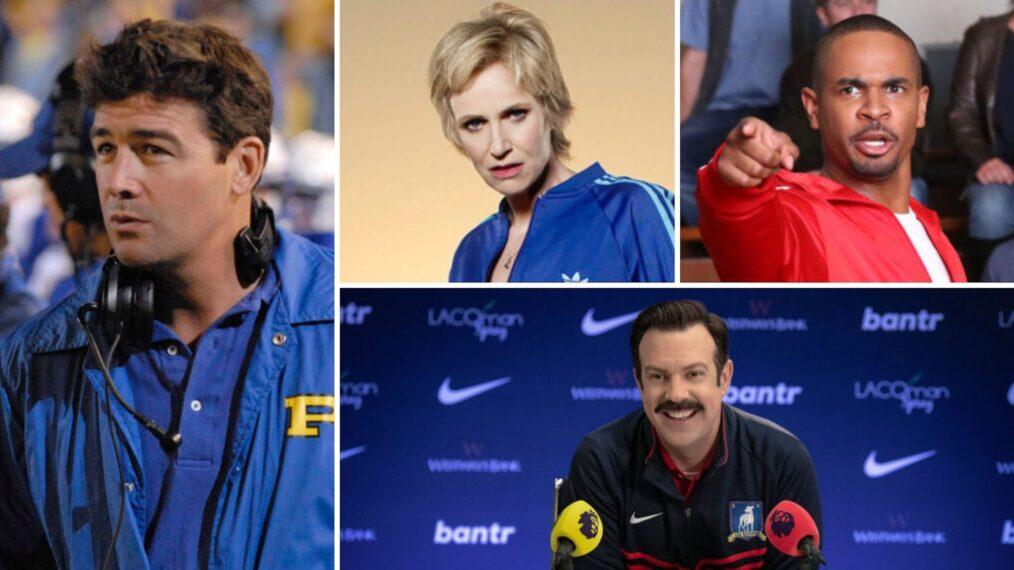In recent years, the spotlight on athlete mental health has intensified, reshaping the traditional landscape of sports coaching. As awareness grows around the psychological challenges faced by athletes, coaches are increasingly stepping beyond their conventional roles of strategy and physical training to become crucial advocates and supporters of mental well-being. This shift represents a significant evolution in coaching responsibilities, highlighting the need for specialized knowledge and empathy in addressing mental health issues. In this article, we explore how coaches are adapting to these demands, the resources empowering them, and the impact this transformation has on athletes and the broader sporting community.
The Growing Importance of Mental Health Awareness in Coaching
Coaches today are navigating increasingly complex responsibilities that extend far beyond physical training and tactical preparation. With mental health issues gaining recognition within the sports community, coaches are now seen as pivotal allies in creating a supportive environment for athletes. Their role includes identifying early signs of distress, fostering open communication, and promoting resilience strategies that can mitigate the pressures of competition and performance. This shift not only enhances athlete well-being but also contributes decisively to sustained performance excellence.
Integrating mental health awareness into coaching practices involves a multifaceted approach that combines education, empathy, and proactive intervention. Successful programs emphasize:
- Regular mental health screenings to identify challenges before they escalate
- Ongoing mental health education tailored for coaches and athletes alike
- A culture of openness where asking for help is normalized and encouraged
- Collaboration with mental health professionals to provide specialized support when needed
| Key Mental Health Factor | Impact on Athlete Performance | Role of Coach |
|---|---|---|
| Stress Management | Improves focus and reduces burnout | Implement relaxation techniques |
| Emotional Regulation | Enhances decision-making under pressure | Encourage emotional awareness |
| Social Support | Bolsters confidence and motivation | Foster team cohesion |
Strategies Coaches Use to Support Athlete Wellbeing
Coaches today are embracing a holistic approach to athlete wellbeing, combining practical techniques with empathetic communication. One common strategy involves creating a safe space where athletes feel comfortable discussing mental health challenges without fear of judgment. This environment encourages openness and trust, allowing coaches to identify early warning signs such as withdrawal, irritability, or decreased motivation. By incorporating regular check-ins and open dialogue, coaches help athletes feel supported not just as performers but as individuals navigating complex emotional landscapes.
Beyond conversation, coaches employ a variety of targeted interventions to build resilience and promote balance:
- Integrating mindfulness and stress management exercises into training routines.
- Setting realistic performance goals that emphasize personal growth over perfection.
- Collaborating with mental health professionals to create tailored support plans.
- Educating athletes on nutrition, sleep, and recovery as fundamental pillars of mental wellness.
| Support Strategy | Key Benefit |
|---|---|
| Active Listening | Builds Trust & Rapport |
| Mindfulness Practices | Reduces Anxiety |
| Goal Setting | Enhances Motivation |
| Professional Referrals | Specialized Care Access |
Integrating Mental Health Training into Coaching Programs
Embedding mental health education within coaching curriculums is redefining the way coaches support athletes. This integration enhances their ability to recognize early warning signs of stress, anxiety, and other mental health challenges, allowing for timely intervention. Beyond traditional physical training, coaches trained in mental health cultivate environments that prioritize athlete well-being, resilience, and open communication. Such knowledge not only reduces stigma but also equips coaches with practical tools to navigate sensitive conversations, fostering stronger trust and rapport with their athletes.
Successful programs often incorporate:
- Workshops led by mental health professionals focusing on stress management and coping strategies.
- Scenario-based learning to practice responding to mental health crises within a sporting context.
- Ongoing peer support groups that encourage sharing experiences and best practices.
| Training Component | Purpose | Expected Outcome |
|---|---|---|
| Recognizing Signs | Identify mental health red flags | Early intervention |
| Communication Skills | Handle sensitive discussions | Increased athlete trust |
| Resource Navigation | Connect to professional help | Better support networks |
Building Stronger Athlete Relationships Through Open Communication
Establishing trust between coaches and athletes is fundamental to nurturing a healthy mental environment. When communication flows openly, athletes feel empowered to share not only their physical concerns but also their emotional and psychological challenges. Coaches who actively listen and create a safe space promote resilience and self-awareness, which are critical for both performance and personal growth. Key communication strategies include:
- Asking open-ended questions to encourage detailed responses
- Providing consistent, constructive feedback without judgment
- Recognizing non-verbal cues that may indicate underlying stress or anxiety
By integrating these approaches, coaches can better identify early signs of mental health struggles and intervene appropriately. The dynamic is further enhanced when athletes see their coaches as approachable allies rather than just authority figures. This change in perception strengthens commitment and fosters a culture where mental wellness is as prioritized as physical conditioning.
In Retrospect
As awareness of mental health in sports continues to grow, the role of coaches is evolving beyond physical training to encompass emotional and psychological support. This shift underscores the need for ongoing education, resources, and collaboration within the athletic community to foster environments where athletes can thrive both on and off the field. The Sport Information Resource Centre remains committed to spotlighting these critical developments, ensuring coaches are equipped to meet the mental health challenges of today’s athletes.





